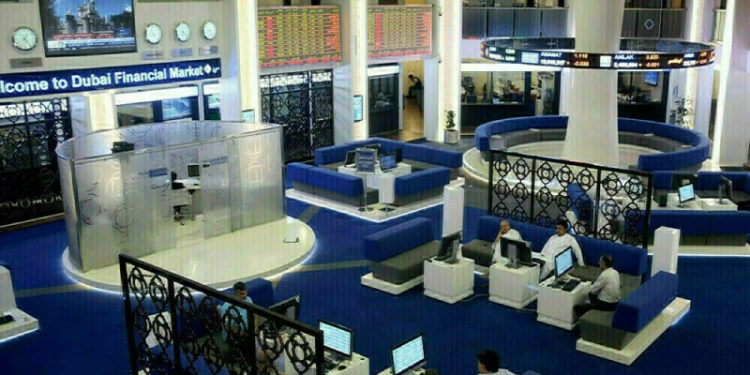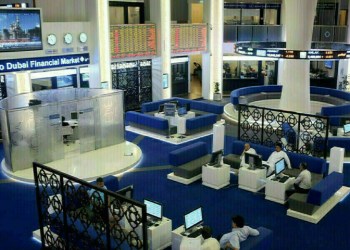NEW YORK: Wall Street led global stocks higher on Monday as the beaten down tech sector rallied, also lifting oil prices, while investors kept an eye on a U.S.-China trade spat.
Large-cap U.S. tech companies rose 2.6 percent but are still down more than 7 percent from a record high hit four weeks ago.
The United States and China have threatened each other with tens of billions of dollars of tariffs. China stepped up its attacks on the Trump administration on Monday, saying Washington was to blame for the frictions and repeating it was impossible to negotiate under “current circumstances.”
The comments came after U.S. President Donald Trump on Sunday predicted China would take down its trade barriers, and expressed optimism that both sides could resolve the issue through talks.
“This is not going to happen tomorrow, and given the mercurial nature of the U.S. administration, the whole issue could well disappear before anything really happens,” ACLS Global chief strategist Marshall Gittler said.
“Many market participants may be starting to think that this is just a lot of sound and fury, signifying nothing in the end. But … you never know, U.S. trade policy is in the hands of someone totally unpredictable.”
The next big focus will be a speech by Chinese President Xi Jinping on Tuesday.
The Dow Jones Industrial Average rose 368.12 points, or 1.54 percent, to 24,300.88, the S&P 500 gained 41.7 points, or 1.60 percent, to 2,646.17 and the Nasdaq Composite added 141.45 points, or 2.05 percent, to 7,056.56.
The pan-European FTSEurofirst 300 index rose 0.17 percent and MSCI’s gauge of stocks across the globe gained 1.08 percent.
Emerging market stocks rose 0.12 percent. MSCI’s broadest index of Asia-Pacific shares outside Japan closed 0.91 percent higher, while Japan’s Nikkei rose 0.51 percent.
SANCTIONS PAIN HITS RUSSIA
Russian stock indexes and the rouble both fell on Monday after the United States hit Russian companies and officials as part of an aggressive round of new sanctions to punish Moscow for a range of activities, including alleged meddling in the 2016 U.S. election.
The dollar-denominated RTS stock market index slid 11.4 percent, its largest single-day drop since December 2014, while the rouble was 3.6 percent weaker against the dollar, the biggest such move since October 2015.
The dollar slipped against a basket of currencies on persistent worries about the U.S.-China trade conflict while the euro rose following comments from European Central Bank President Mario Draghi that were deemed supportive of the common currency.
The dollar index fell 0.25 percent, with the euro up 0.28 percent to $1.2316.
The Japanese yen weakened 0.02 percent versus the greenback to 106.94 per dollar, while Sterling last traded at $1.4132, up 0.30 percent on the day.
U.S. crude rose 2.08 percent to $63.35 per barrel and Brent was last at $68.51, up 2.09 percent on the day.
“Once again we find the oil market being swept up in broader market sentiment,” said Matt Smith, director of commodity research at ClipperData.
“After Friday’s flight from risk, the positive mood in equities to start the week is encouraging a rebound in oil, with a weakening dollar providing a further shot in the arm.”
Benchmark 10-year notes last fell 6/32 in price to yield 2.7972 percent, from 2.775 percent late on Friday.
The U.S. Treasury is set to auction $30 billion in U.S. 3-year notes on Tuesday, $21 bln in reopened 10-year notes on Wednesday, and $13 billion in reopened 30-year bonds on Thursday.
“The combination of conciliatory Trump tweets (regarding China) on the trade front and the looming long-end supply ostensibly make it difficult to be constructive on Treasuries as the week gets underway,” said Ian Lyngen, head of U.S. rates strategy at BMO Capital Markets in New York.
The 30-year bond last fell 10/32 in price to yield 3.0335 percent, from 3.017 percent late on Friday.
Spot gold added 0.2 percent to $1,335.14 an ounce. U.S. gold futures gained 0.18 percent to $1,338.50 an ounce.
Copper rose 0.98 percent to $6,835.00 a tonne.
Source: Brecorder



























